#Henry Jaynes Fonda
Explore tagged Tumblr posts
Text
12 agosto … ricordiamo …
12 agosto … ricordiamo … #semprevivineiricordi #nomidaricordare #personaggiimportanti #perfettamentechic
2021: Una Stubbs, attrice britannica. È stata sposata con l’attore Peter Gilmore e hanno adottato un figlio, Jason. Dopo il divorzio sposò l’attore Nicky Henson e hanno avuto due figli: il compositore Christian Henson (nato 1971) e il musicista-compositore Joe Henson (nato 1973). (n. 1937) 2021: Tarcisio Meira, pseudonimo di Tarcisio Magalhaes Sobrinho, attore brasiliano. Sposato per quasi 60…
youtube
View On WordPress
#12 agosto#12 agosto morti#Abraham Elieser Adolph Schönberg#Achille Togliani#Agnes Zetterstrand#Al Shean#Anna Held#Anne Celeste Heche#Anne Heche#Betty Joan Perske#Dorothy Mackaill#Gretchen Young#Helene Anna Held#Henry Fonda#Henry Jaynes Fonda#Ian Fleming#Ian Lancaster Fleming#Lauren Bacall#Loretta Young#Olga Villi#Paola Di Gerfalco#Paola Mori#Phillips Holmes#Ricordiamo#Shirley Grey#Tarcisio Magalhaes Sobrinho#Tarcisio Meira#Una Stubbs#Youtube
0 notes
Text
0 notes
Text
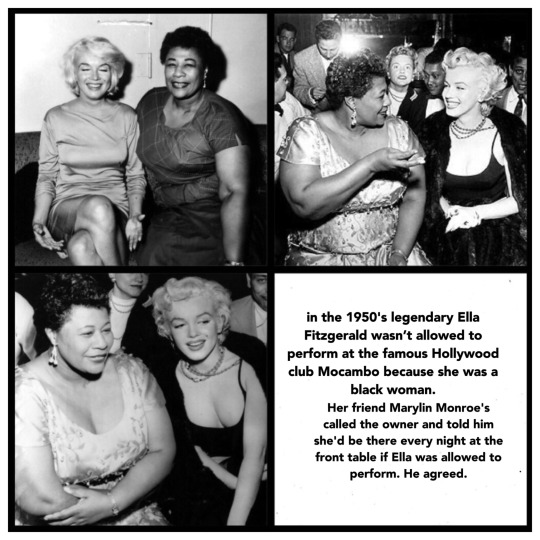
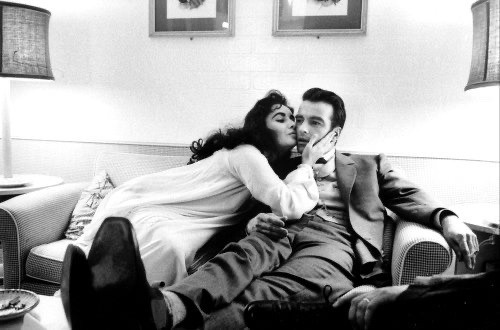
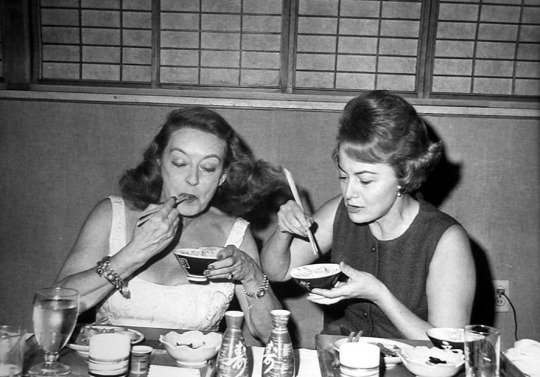
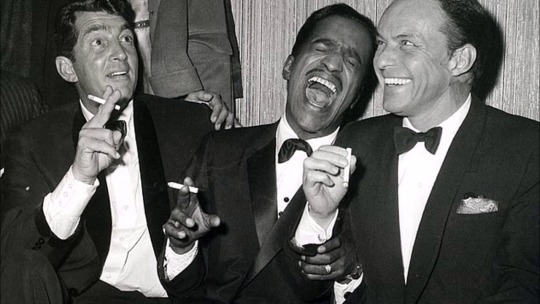



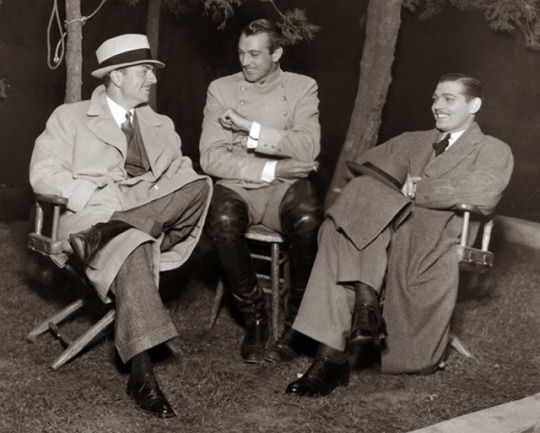

Vintage Celebrity Friends
Ella Fitzgerald and Marilyn Monroe
in the 1950's legendary Ella Fitzgerald wasn’t allowed to perform at the famous Hollywood club Mocambo because she was a black woman . Her friend Marylin Monroe's called the owner and told him she'd be there every night at the front table if Ella was allowed to perform. He agreed.
Elizabeth Taylor and Montgomery Clift
Bette Davis and Olivia de Havilland
Dean Martin, Sammy Davis Jr and Frank Sinatra
Henry Fonda and James Stewart
Lena Horne and Hazel Scott
Joan Crawford and Barbara Stanwyck
William Powell, Gary Cooper, and Clark Gable on set at MGM 1934
Joan Collins and Jayne Mansfield
#Ella Fitzgerald#Marilyn Monroe#Elizabeth Taylor#montgomery clift#bette davis#olivia de havilland#dean martin#sammy davis jr#frank sinatra#henry fonda#james stewart#lena horne#hazel scott#joan crawford#barbara stanwyck#william powell#Gary cooper#clark gable#joan collins#jayne mansfield#actress#hollywood#actor#friends#vintage glamour
202 notes
·
View notes
Text
scandalous star: henry fonda - an analysis
“I don't really like myself. Never did. People mix me up with the characters I play. I'm not a great guy like [some of the characters I play]. I'd like to be but I'm not.” - Henry Fonda
Pity. I love Henry Fonda. Mainly because he reminds me so much of my own father, who also happens to be a strong, silent Taurus. His bearing suggested something like morality, a sort of ethics of posture and gait: upright and humane, empathic if also stoic and withdrawn. Indeed, he was, onscreen, a man who exemplified for nearly half a century a man of honesty and decency in more than 100 film and stage roles. So much of what we know about Fonda derives from the authority of his body on-screen: a long, taut, calibrated instrument, most expressive when restrained—as it nearly always was. He perfected an understated style that might be called precisionist, his performances all sharp lines and edges. He acted naturally. On film, he repeatedly bears the values, and burdens, of civilization. Many people my age associate him not with the performances of his Ford-era classics—the stunning 12 Angry Men being my personal favourite—but with his self-portrait as the flinty father in the sentimental 1981 drama On Golden Pond, his swan song for which he won an Oscar.
Fonda was the patriarch of a family of famous actors, including daughter Jane, son Peter, granddaughter Bridget, and grandson Troy Garity. His two biological children, Peter and especially Jane, are more immediate in the collective consciousness, linked to ’60s counterculture via hedonism and leftist radicalism, and because each had a publicly strained relationship with him. Fonda is a man stranded due to the intensities of familial strife, amplified into cultural conflict. Off-screen, Fonda was a useless father and unfaithful husband. True to his earth and air dominance, Fonda loathed displays of feeling in himself or others, and this was a consistent part of his character. Whenever he felt that his emotional wall was being breached, he had outbursts of anger, exhibiting a furious temper that terrified his family. He was described as cold, self-absorbed and a bully to women, not to mention a shameless womanizer, marrying five times. He drove his second wife, Jane’s mother, to suicide. Fonda—the outmoded liberal, the vital-center moderate who is too accepting of compromise—seems marooned on the far side of the 1960s. Nonetheless, I love his equanimity and his sober dignified maturity: a man with a mournful appreciation of the past and its costs, rather than a heedless orientation toward the future.
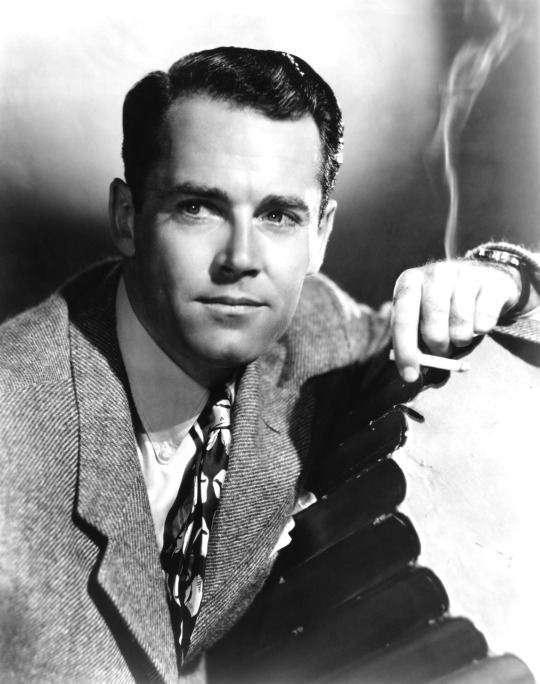
Henry Jaynes Fonda, according to astrotheme, was a Taurus sun and Libra moon. He was born in Grand Island, Nebraska, to the former Herberta Jaynes and William Brace Fonda, owner of a small printing company in Omaha. Initially, he was a short shy boy keenly interested in boys scouting; but avoided girls as much as he could. When he was 14, he and his father witnessed the brutal lynching of a black man named Will Brown from a nearby building during the Omaha race riot of 1919. This enraged the young Fonda and he kept a keen awareness of prejudice for the rest of his life. Towards the end of his school years he suddenly grew tall and handsome. His aim in life was to become journalist and he graduated from the Omaha Central High School in 1923. He attended the University of Minnesota, studying journalism while working in two jobs, as a physical-education instructor at a settlement house and as a troubleshooter for the telephone company. In his sophomore year, he later said, he was exhausted and returned home for a rest.While supporting himself with a series of unsatisfying jobs, he was persuaded by Dorothy Brando, a family friend and the mother of the future star Marlon Brando, to join the Omaha Community Playhouse, where Mr. Fonda acted, painted scenery, became assistant director - and resolved on his career. After two years at the playhouse, he decided to try his luck in New York - to no avail. He went on to Cape Cod, Massachusetts, where he joined the University Players, composed of college students, including future film stars James Stewart (who became his life-long friend) and Margaret Sullavan, who was to become Fonda's first wife. Over the next four summers and one winter season with the group, Mr. Fonda played a wide variety of leading roles, becoming a seasoned actor. His marriage to Sullavan ended in divorce in 1933. On Broadway, meanwhile, he got a walk-on part and bit roles in two short-lived plays, and he appeared in comedy skits in the 1934 hit revue ''New Faces.''
In the succeeding decade, the actor alternated easily between films and the theater. Fonda was a rising star in 1936 when he met beautiful but emotionally fragile New York socialite Frances Ford Seymour on the set of a British film, Wings Of The Morning, which he was making in England.
Frances Ford Seymour, Henry’s doomed second wife
After a whirlwind romance, Frances badgered Henry into getting married. Frances was the daughter of an American industrialist whose family claimed ancestry from Henry VIII’s third wife Jane Seymour – a fact that was reflected in Jane Fonda’s full name being Lady Jayne Seymour Fonda. Medical records revealed that Seymour was a victim of recurrent sexual abuse in her childhood. According to her daughter Jane, it was at the hands of her piano teacher. The abuse left Frances traumatized, and turned her into a promiscuous adolescent who had nine abortions before her first daughter Frances de Villers "Pan" Brokaw was born; Seymour’s first, much older husband, businessman George Brokaw, was a violent alcoholic who beat her savagely. A year after Brokaw died, Seymour married Henry Fonda. Their daughter Jane was born in 1937. Flighty and self-absorbed, Frances ignored her daughter, who she left to be brought up by nannies. Her father was no better, preferring to fly kites with his good friend, movie star Jimmy Stewart, than spend time with either one of his children. Frances was diagnosed with bipolar disorder after the birth of Peter in 1940. Discovering that her husband was cheating on her with other women, Frances went to desperate lengths to regain his attention. She would walk around naked in front of him and even crawl on her hands and knees to him, begging him to talk to her. It didn’t work. Terrified she was losing her looks, she would spend hours in her darkened bedroom, wearing a chin strap and eye pads to keep her skin youthful. She had plastic surgery long before it was commonplace.
In August 1949, Fonda announced to Frances that he wanted a divorce so he could marry his mistress Susan Blanchard; their 13 years of marriage had not been happy ones for him. Devastated, Frances spiraled into a mental breakdown and had repeated stays in psychiatric hospitals, sometimes being confined in a straitjacket. Rather than comfort a woman who was descending into madness, her husband’s main concern was for the damage it would cause to his career if word got out his wife was in a ‘loony bin’. When Frances was allowed home briefly from a psychiatric institution (shadowed by nurses because she was on suicide watch), she called out desperately for Jane. But the 12-year-old hid upstairs. Frances didn’t see her daughter that day, but she did manage to distract her nurses long enough to slip a tiny razor into her pocket. A week later, on her 42nd birthday in April 1950, she shut herself in a bathroom at the hospital and used the razor to kill herself by slashing her throat from ear to ear. Unperturbed, Henry Fonda performed on Broadway that night as usual. He didn’t even give their two children the farewell letters their mother had written them, and insisted that she had died of a heart attack. Her daughter Jane only learned the awful truth about her mother’s suicide months later when a fellow school pupil showed her a report in a film magazine. Her brother Peter didn’t know for years. By then, having been packed off to boarding school where she had nightmares every night about her dead mother, Jane wrote to her father about her terrors. Henry returned her letters with her grammatical errors highlighted in red ink, refusing ever to discuss the suicide. Later in that same year, Fonda married Blanchard.
He starred in comedies such as The Lady Eve with one of his favourite co-stars, Barbara Stanwyck (who he had a lifelong crush on). In World War II, Fonda enlisted in the Navy as a seaman, rising to lieutenant and receiving a Bronze Star and Presidential citation for his work as an operations and air-combat intelligence officer in the Pacific. He starred in movies directed by John Ford, and their collaborations produced a number of classic films that established Fonda as a star. It was his role as the dispossessed farmer and ex-convict Tom Joad in The Grapes of Wrath (1940), an adaptation of John Steinbeck’s novel that earned Fonda particular praise and his first Academy Award nomination. After the war, Fonda took a break from movies and attended Hollywood parties and enjoyed civilian life. Stewart and Fonda would listen to records and invite Johnny Mercer, Hoagy Carmichael, Dinah Shore, and Nat King Cole over for music, with the latter giving the family piano lessons. In 1957 Fonda made his first foray into producing with 12 Angry Men, in which he also starred. Early on, the film drew poorly, but after gaining recognition and awards, it proved a success. During the 1960s, Fonda performed in a number of war and Western epics, including 1962's The Longest Day and the Cinerama production How the West Was Won. His third marriage, to Susan Blanchard, with whom he adopted his daughter Amy, ended in divorce, as did his fourth marriage, to Contessa Afdera Franchetti. His fifth wife was the former Shirlee Mae Adams.
Despite approaching his seventies, Fonda continued to work in theater, television and film through the 1970s. Hollywood first made its amends in April 1981, when it awarded him an honorary Oscar for career-long achievement. A year later Hollywood underscored its esteem by awarding him the Oscar for On Golden Pond. With 10 Academy Award nominations, the film earned nearly $120 million at the box office, becoming an unexpected blockbuster. In addition to wins for his co-star Katharine Hepburn (Best Actress), and Best Screenplay, On Golden Pond brought Fonda his only Oscar - for Best Actor (he was the oldest recipient of the award; it also earned him a Golden Globe Best Actor award). Fonda was by that point too ill to attend the ceremony, and his daughter Jane accepted on his behalf. Fonda died at his Los Angeles home on August 12, 1982, from heart disease. He was 77.
Next, I’ll cover an equally taciturn yet feisty Taurus: the famously cantankerous Katharine Hepburn.

STATS
birthdate: May 16, 1905
major planets:
Sun: Taurus
Moon: Libra
Rising: Virgo
Mercury: Taurus
Venus: Aries
Mars: Scorpio
Midheaven: Gemini
Jupiter: Taurus
Saturn: Pisces
Uranus: Capricorn
Neptune: Cancer
Pluto: Gemini
Overall personality snapshot: The principles of justice and harmony featured strongly in all he did. He wanted to get to grips with ideas and translate his vision of Utopia into a realistic proposition, but probably discovered the necessity for compromise. This may have disillusioned him at first, but later will become central to the way he operated. Innately sociable and convivial, he was genuinely interested in other people and indeed needed large amounts of kindness and affection. He wanted the best for everyone but he made sure that he did not skimp on himself. He thrived in beautiful surroundings and in the company of elegant minds. An innately aesthetic person, and probably quite romantic as well, he brought a genuine warmth and lively concern to all social gatherings, which made him downright flirtatious sometimes. If he was an artist, he created works of art that were good enough to eat; if he became a chef, dishes that were works of art. Whatever he did, his creations will express his innate sense of harmony, beauty and style. A lively social conscience is another aspect of this combination, as well as an awareness of the importance of education in the healthy development of the individual and of society.
He was attracted to progressive ideas that assert the inalienable rights of every human being, and he accepted the paradoxical fact that everyone is different and yet the same. He believed in a society that respects both material needs and high moral values, and his social instinct and pragmatic perseverance may have taken him into social-welfare work or the political arena where he could express his power and idealism. He learned how to make others see the intelligence of his thinking by first listening to and valuing their thinking on the subject. But he probably had a diplomatic knack of making sure the substance of his view prevails. And he could really impress with the practicality of his approach: he economized with flair and used the resources to hand. Waste not, want not, he always said. He also knew that a happy, convivial, relaxed atmosphere was the most conducive to constructive communication and compromise. Conflict is anathema to his being and he employed his natural diplomatic skills to overcome antagonism in any setting – with the sheer force of his magnetic personality.
His body was neat and wiry, and he used neat and economical movements. His well-groomed appearance was mirrored in his cool and classic way of dressing, good posture, fine bone structure and animated expression. Physically, he possessed good stamina. He tended to look younger than he really was, all the way through into his later years. He was practical, steady and patient, but he could be inflexible in his views. One thing he did have was plenty of common sense and good powers of concentration, although he tended to think that purely abstract thought was a waste of time. His thought processes weren’t as quick as others, but his decisions were made with a lot of thought behind them. He loved to talk and to travel, so with his able to combine these two in her job as an author, he was happy. He needed to have a fair degree of variety and change within his job, and the aspect of travel may have satisfied this. In whatever job he would have done, he would always have been the perpetual student, as long as the subject was interesting enough. He was a person who wanted a first-class life-style, and who treasured his possessions. He needed to be able to feel materially secure, and he probably gained wealth through sheer industry, because he was patient, steady and confident in this area of his life. However, he may also have been a little too trusting when it came to money, presuming too easily that there is always more where it came from. His acquired wealth may be generously distributed, both on himself, for he was self-indulgent, and on others, because he was vulnerable to sob stories.
A rather complex person, he was artistic, creative, intuitive and compassionate. At times, he was his own worst enemy, because he tended to relive past errors over and over again, which gave him a negative outlook on life. He could be hypersensitive and moody, needing quiet and solitude. Although he had a basic fear of subjects he didn’t understand, they fascinated him nevertheless. He looked for a life partner who had similar ideals to him. He belonged to a generation with a rational and logical attitude to life, a time when scientific advances came to the fore. There was a conflict between tradition and convention, and the experimental and unconventional. As an individual, he learned to strike a balance between the erratic and the conventional. He had the ability to come up with original ideas which could be of practical value. He was part of an emotionally sensitive generation that was extremely conscious of the domestic environment and the atmosphere surrounding their home place and home country. In fact, he could be quite nostalgic about his homeland, religion and traditions, often seeing them in a romantic light. He felt a degree of escapism from everyday reality, and was very sensitive to the moods of those around him. Fonda embodied all of these Cancer Neptunian ideals, trying in vain for the rest of his life to please his moody, petty, vicious mother and live up to her expectations. As a Gemini Plutonian, he showed an enormous amount of mental vitality, originality and perception. Traditional customs and taboos were examined and rejected for newer and more original ways of doing things.
Love/sex life: The bad news first; he was one of the least subtle of the Scorpio Martian lovers and his attempts at using his sexuality as a means to dominate were likely to be clumsy, bombastic and, in the end, ineffective. His biggest problem is a lack of patience. For most people of this type, sex is a time-consuming activity in which erotic sensibilities are allowed to simmer slowly in a thick stew of emotional meaning and physical delight, but he was just too impulsive and too horny for such drawn out processes. He needed his pleasure now. Now the good news; he was one of the most active lovers of this type. He was not content to just sit back and observe passion. He went out, found it and made it his own. He liked challenges in his relationships—new experiences, aggressive partners and the spice of a good fight. This kept his sexual instincts sharp and helped him resist the temptation to sink into redundant sensuality. In a nutshell, he was the most alert, dynamic and courageous of all the lovers of this Martian type. So why should he have had to wait?
In 1949, when Fonda told his mentally fragile second wife Frances Ford Brokaw he wanted a divorce so he could marry his 20-year-old mistress, the devastated Brokaw spiraled into increasing mental instability and entered a psychiatric hospital for treatment. Four months later, at age 42, she committed suicide by slitting her throat with a stolen razor. Fonda refused to discuss her suicide with his children, who didn't learn the truth for years. The following year, at the age of 45, Fonda married Susan Blanchard, stepdaughter of theatrical producer Oscar Hammerstein II, who later became a producer herself. They adopted a daughter named Amy in 1953. Blanchard was in awe of Fonda, and she described her role in the marriage as "a geisha", doing everything she could to please him, dealing with and solving problems he would not acknowledge. But five years of marriage was enough for Blanchard. Italian baroness Afdera Franchetti became Fonda's fourth wife two years after his divorce from Blanchard. Audrey Hepburn introduced the two while she and Fonda were in Italy filming War and Peace. Franchetti and Fonda married in 1957 and divorced four years later in 1961. Fonda's final and most enduring marriage was to Shirlee Adams, a former flight attendant and model whom he married in 1965. She was at his side when he died. It seems Fonda had finally met his match and mellowed in the process.
minor asteroids and points:
North Node: Virgo
Lilith: Taurus
Vertex: Aquarius
Fortune: Aquarius
East Point: Virgo
His North Node in Virgo dictated that his tendency to dream and be disorganized needed to be tempered by developing more practical and down-to-earth attitudes. His Lilith in Taurus dictated that he was dangerously attracted to women who were unabashed sensualists. These women were earthy, smutty, and totally without apology for their perfectly natural needs. He fell for women whose gut instincts were impeccable, their libido formidable, and whose sexual life-forces operated above and beyond petty morality. His Vertex in Aquarius, 6th house dictated that he yearned for completion of himself through the highest ideal of friendship. Hidden in the inner recesses of his soul were desires for a union that would impact the world in an almost utopian sense. There was a yearning for each act of intimacy to reflect a conviction of how all relationships should be in order for the world to be a better place.There was no place for exhibitions of jealousy with him. If his lover joined him in his lofty dreams, they had a companion for life. He had an attitude of duty, obligation and sacrifice when it came to heartfelt interactions. He tended to become hypochondriacal or martyristic to get the love so desperately wanted. There was a need for others to appreciate the sincerity of his intentions, to the daily tasks he executed in a conscientious and caring way and for others to know that his actions, no matter how routine they may have seemed, were based on devoted love.
His Part of Fortune in Aquarius and Part of Spirit in Leo dictated that his destiny lay in opening his mind and experiencing unique and unconventional life experiences. Happiness and fulfillment came from following pursuits that were idealistic, innovative and unique. This was especially so where there was a humanitarian benefit to his efforts. His soul’s purpose asked him to take a prominent position in life as a leader of some sort. He felt spiritual connections and the spark of the divine when he stepped forward into the spotlight and performed. East Point in Virgo dictated that he was most likely to personally identify with the need to work and to be pragmatic. He needed early responsibilities (which were within his capabilities). He tended to feel guilty when not working, as if he should be contributing in some way. He was generally identified with his work (“I am what I do.”) and with a performance orientation. If carried too far, this led to excessive self-criticism. When done in moderation, he was simply very practical and realistic, usually worked hard and saw life and himself clearly.
elemental dominance:
earth
air
He was a practical, reliable man and could provide structure and protection. He was oriented toward practical experience and thought in terms of doing rather than thinking, feeling, or imagining. Could be materialistic, unimaginative, and resistant to change. But at his best, he provided the practical resources, analysis, and leadership to make dreams come true. He was communicative, quick and mentally agile, and he liked to stir things up. He was likely a havoc-seeker on some level. He was oriented more toward thinking than feeling. He carried information and the seeds of ideas. Out of balance, he lived in his head and could be insensitive to the feelings of others. But at his best, he helped others form connections in all spheres of their daily lives.
modality dominance:
fixed
He liked the challenge of managing existing routines with ever more efficiency, rather than starting new enterprises or finding new ways of doing things. He likely had trouble delegating duties and had a very hard time seeing other points of view; he tried to implement the human need to create stability and order in the wake of change.
house dominants:
8th
9th
10th
He loved the totality of the human experience and embraced the whole cycle of human life, including birth, sex and death. His darker side, and the complexes and emotions that he preferred to keep hidden, even from himself was a theme throughout his life. His ability to undergo deep personal transformations and spiritual regeneration was also highlighted. Traveling, whether physically across the globe, on a mental plane or expanding through study was a major theme in his life. He was not only concerned with learning facts, but also wanted to understand the connections formed between them and the philosophies and concepts they stand for. His conscience, as well as foreign travel, people and places was also of paramount importance in his life. His ambition in relation to the outside world, the identity he wished to achieve in regard to the community at large, and his career aspirations were all themes that were emphasized throughout his life. All matters outside the home, his public image and reputation were very important to his. His attitude to people in authority, and how he viewed the outside world, as well as the influence of his mother and his own attitude to her was highlighted.
planet dominants:
Mercury
Pluto
Venus
He was intelligent, mentally quick, and had excellent verbal acuity. He dealt in terms of logic and reasoning. It was likely that he was left-brained. He was restless, craved movement, newness, and the bright hope of undiscovered terrains. He brought about complete and profound transformations in his life, good or bad. He felt the need to let go of what was familiar to him and accept new and different ways of being and doing things. There were areas in his life where he had to accept regeneration, which involved the destruction of the old and the creation of the new. He was romantic, attractive and valued beauty, had an artistic instinct, and was sociable. He had an easy ability to create close personal relationships, for better or worse, and to form business partnerships.
sign dominants:
Taurus
Gemini
Virgo
His stubbornness and determination kept him around for the long haul on any project or endeavour. He was incredibly patient, singular in his pursuit of goals, and determined to attain what he wanted. Although he lacked versatility, he compensated for it by enduring whatever he had to in order to get what he wanted. He ventured out to see what else was there and seized upon new ideas that expanded his community. His innate curiosity kept him on the move. He used his rational, intellectual mind to explore and understand his personal world. He needed to answer the single burning question in his mind: why? This applied to most facets of his life, from the personal to the impersonal. This need to know sent him off to foreign countries, where his need to explore other cultures and traditions ranked high. He was changeable and often moody. This meant that he was often at odds with himself—the mind demanding one thing, the heart demanding the opposite. To someone else, this internal conflict often manifested as two very different people. He was a discriminating, attractive, thorough, scientific, hygienic, humane, scientific man and had the highest standards. His attention to detail was second to none and he had a deeply penetrative and investigative mind.
Read more about him under the cut:
This remarkable, soft-spoken American began in films as a diffident juvenile. With passing years, he matured into a star character actor who exemplified not only integrity and strength, but an ideal of the common man fighting against social injustice and oppression. Henry's father, William Brace Fonda, was a commercial printer, proprietor of the W. B. Fonda Printing Company in Omaha, Nebraska. His distant ancestors were Italians who had fled their country and moved to Holland, presumably because of political or religious persecution. In the mid-1600's, they crossed the Atlantic and settled in upstate New York where they founded a community with the Fonda name. Growing up, Henry developed an early interest in journalism after having a story published in a local newspaper. At the age of twelve, he helped in his father's printing business for $2 a week. Following graduation from high school in 1923, he got a part-time job in Minneapolis with the Northwestern Bell Telephone Company which allowed him at first to pursue journalistic studies at the University of Minnesota. As it became difficult to juggle his working hours with his academic roster, he obtained another position as a physical education instructor at $30 a week, including room and board. By this time, he had grown to a height of six foot one and was a natural for basketball. In 1925, having returned to Omaha, Henry reevaluated his options and came to the conclusion that journalism was not his forte, after all. For a while, he tried his hand at several temporary jobs, including as a mechanic and a window dresser. Then, despite opposition from his parents, Henry accepted an offer from Gregory Foley, director of the Omaha Playhouse, to play the title role in 'Merton of the Movies'. His father would not speak to him for a month. The play and its star received fairly good notices in the local press. It ran for a week, after which Henry observed "the idea of being Merton and not myself taught me that I could hide behind a mask". For the rest of the repertory season, Henry advanced to assistant director which enabled him to design and paint sets as well as act. A casual trip to New York, however, had already made him set his sights on Broadway. In 1928, he headed east and briefly played in summer stock before joining the University Players, a group of talented Princeton and Harvard graduates among whose number were such future luminaries as James Stewart (who would remain his closest lifelong friend), Joshua Logan and Kent Smith. Before long, Henry played leads opposite Margaret Sullavan, soon to become the first of his five wives. Both marriage and the players broke up four years later. In 1932, Henry found himself sharing a two-room New York apartment with Jimmy Stewart and Joshua Logan. For the next two years, he alternated scenic design with acting at various repertory companies. In 1934, he got a break of sorts, when he was given the chance to present a comedy sketch with Imogene Coca in the Broadway revue New Faces. That year, he also hired Leland Hayward as his personal management agent and this was to pay off handsomely. It was Hayward who persuaded the 29-year old to become a motion picture actor, despite initial misgivings and reluctance on Henry's part. Independent producer Walter Wanger, whose growing stock company was birthed at United Artists, needed a star for The Farmer Takes a Wife (1935). With both first choice actors Gary Cooper and Joel McCrea otherwise engaged, Henry was the next available option. After all, he had just completed a successful run on Broadway in the stage version. The cheesy publicity tag line for the picture was "you'll be fonder of Fonda", but the film was an undeniable hit. Wanger, realizing he had a good thing going, next cast Henry in a succession of A-grade pictures which capitalized on his image as the sincere, unaffected country boy. Pick of the bunch were the Technicolor outdoor western The Trail of the Lonesome Pine (1936), the gritty Depression-era drama You Only Live Once (1937) (with Henry as a back-to-the-wall good guy forced into becoming a fugitive from the law by circumstance), the screwball comedy The Moon's Our Home (1936) (with ex-wife Sullavan), the excellent pre-civil war-era romantic drama Jezebel (1938) and the equally superb Young Mr. Lincoln (1939), in which Henry gave his best screen performance to date as the 'jackleg lawyer from Springfield'. Henry made two more films with director John Ford: the pioneering drama Drums Along the Mohawk (1939) and The Grapes of Wrath (1940), with Henry as Tom Joad, often regarded his career-defining role as the archetypal grassroots American trying to stand up against oppression. It also set the tone for his subsequent career. Whether he played a lawman (Wyatt Earp in My Darling Clementine (1946)), a reluctant posse member (The Ox-Bow Incident (1942), a juror committed to the ideal of total justice in (12 Angry Men (1957)) or a nightclub musician wrongly accused of murder (The Wrong Man (1956)), his characters were alike in projecting integrity and quiet authority. In this vein, he also gave a totally convincing (though historically inaccurate) portrayal in the titular role of The Return of Frank James (1940), a rare example of a sequel improving upon the original. Henry rarely featured in comedy, except for a couple of good turns opposite Barbara Stanwyck -- with whom he shared an excellent on-screen chemistry -- in The Mad Miss Manton (1938) and The Lady Eve (1941). He was also good value as a poker-playing grifter in the western comedy A Big Hand for the Little Lady (1966). Finally, just to confound those who would typecast him, he gave a chilling performance as one of the coldest, meanest stone killers ever to roam the West, in Sergio Leone's classic Once Upon a Time in the West (1968). Illness curtailed his work in the 1970s. His final screen role was as an octogenarian in On Golden Pond (1981), in which he was joined by his daughter Jane. It finally won him an Oscar on the heels of an earlier Honorary Academy Award. Too ill to attend the ceremony, he died soon after at the age of 77, having left a lasting legacy matched by few of his peers. (x)
13 notes
·
View notes
Text
OLD HOLLYWOOD STARS & THEIR ZODIAC SIGNS
Aries: Gregory Peck, Spencer Tracy, Bette Davis, Joan Crawford, William Holden, Doris Day, Anthony Perkins, Debbie Reynolds, Ann Miller, Billie Holiday, Karl Malden, Warren Beatty, Marlon Brando, Charlie Chaplin, Mary Pickford, Lon Chaney, Steve McQueen, Ed Begley, Melvyn Douglas, Alec Guinness, Leslie Howard, Jayne Mansfield
Taurus: Jimmy Stewart, Fred Astaire, Bing Crosby, Audrey Hepburn, Katharine Hepburn, Don Rickles, Orson Welles, Tyrone Power, Rudolph Valentino, Gary Cooper, Henry Fonda, Shirley MacLaine, Shirley Temple, Anthony Quinn, James Mason, Ella Fitzgerald, Lionel Barrymore, Phil Silvers, Jack Klugman, Harold Lloyd, Mary Astor, Simone Simon, Margaret Sullavan, Eve Arden
Gemini: Judy Garland, Bob Hope, Dean Martin, Errol Flynn, Laurence Olivier, Marilyn Monroe, John Wayne, Tony Curtis, Rosemary Clooney, Douglas Fairbanks, Burl Ives, Al Jolson, Stan Laurel, Vincent Price, Basil Rathbone, Rosalind Russell, Hattie McDaniel, Priscilla Lane, Josephine Baker, Jeanette MacDonald, Peggy Lee
Cancer: Ginger Rogers, Eva Marie Saint, Natalie Wood, Olivia de Havilland, Barbara Stanwyck, Lena Horne, Jimmy Cagney, Milton Berle, Yul Brynner, Peter Lorre, Red Skelton, Jane Russell, Gina Lollobrigida, Leslie Caron, Farley Granger
Leo: William Powell, Myrna Loy, Mae West, Clara Bow, Norma Shearer, Esther Williams, Walter Brennan, Robert Mitchum, Louis Armstrong, Peter O’Toole, Jack Haley, Bert Lahr, Alfred Hitchcock, Maureen O’Hara, Lucille Ball, Shelley Winters, Dolores del Rio
Virgo: Lauren Bacall, Gene Kelly, Sophia Loren, Claudette Colbert, Greta Garbo, Donald O’Connor, Ingrid Bergman, Peter Lawford, Fredric March, James Coburn, Fred MacMurray, Peter Sellers, Raquel Welch, George Chakiris, Vera Miles
Libra: Jean Arthur, Carole Lombard, Montgomery Clift, Rita Hayworth, Deborah Kerr, Charlton Heston, Mickey Rooney, Lillian Gish, Groucho Marx, Buster Keaton, Bela Lugosi, George C. Scott, Lenny Bruce, Walter Pidgeon, Greer Garson, Joan Fontaine, Brigitte Bardot, June Allyson, Julie London
Scorpio: Richard Burton, Rock Hudson, Vivien Leigh, Burt Lancaster, Gene Tierney, Grace Kelly, Claude Rains, Joel McCrea, Johnny Carson, Burgess Meredith, Hedy Lamarr, Eleanor Powell, Veronica Lake
Sagittarius: Frank Sinatra, Kirk Douglas, Sammy Davis Jr, Edward G. Robinson, Rita Moreno, Lee Remick, Boris Karloff, Lee J. Cobb, Ricardo Montalban, Irene Dunne, Agnes Moorehead, Gloria Grahame, Betty Grable, Julie Harris
Capricorn: Cary Grant, Humphrey Bogart, Ava Gardner, Marlene Dietrich, Loretta Young, Ethel Merman, Eartha Kitt, Janet Leigh, Lew Ayres, Ray Bolger, Sal Mineo, Danny Kaye, Oliver Hardy, Oscar Levant, Ray Milland, Elvis Presley, Jane Wyman, Kay Francis, Barbara Rush
Aquarius: Kathryn Grayson, James Dean, Paul Newman, Clark Gable, Jimmy Durante, Jack Benny, Lana Turner, Kim Novak, Ronald Colman, Ernest Borgnine, Randolph Scott, Vera-Ellen, Donna Reed, Jack Lemmon, John Barrymore, George Burns, Arthur Kennedy, Cesar Romero, Jean Simmons, Zsa Zsa Gabor
Pisces: Jerry Lewis, Elizabeth Taylor, Jean Harlow, Nat King Cole, Sidney Poitier, Cyd Charisse, Lee Marvin, Jackie Gleason, Edward Everett Horton, David Niven
#us earth signs stay winning#i'm a taurus just for reference#LOL#old hollywood#tag#zodiac signs#zodiac tag#astrology#vintage#old hollywood zodiac signs#jimmy stewart#audrey hepburn#katharine hepburn#classic hollywood#movie stars#humphrey bogart#star signs#aries#taurus#gemini#cancer#leo#virgo#libra#scorpio#sagittarius#capricorn#aquarius#pisces#cary grant
278 notes
·
View notes
Photo

Henry Jaynes Fonda was born in Grand Island, Nebraska, to Elma Herberta (Jaynes) and William Brace Fonda, who worked in advertising and printing.
12 notes
·
View notes
Text
THE MOCAMBO
January 3, 1940 - June 30, 1958

The Mocambo was a nightclub in West Hollywood, California, at 8588 Sunset Boulevard on the Sunset Strip. Lucille Ball and Desi Arnaz were frequent guests at the Mocambo and were close friends of the co-owner Charlie Morrison. Morrison’s partner (in name only, mostly) was Felix Young.

The Mocambo was once described as “a mixture of imperial Rome, Salvador Dali, and a birdcage.” Interiors were designed by Tony Duquette with murals by Jane Berlandina. Duquette was an uncredited costume designer on Ziegfeld Follies (1945), which featured Lucille Ball. The dominant feature was a large aviary containing 21 parakeets, 4 macaws, and a cockatoo. The club’s opening was scheduled for New Year’s Eve 1939, but was delayed when animal rights activists asserted that the loud noise might negatively impact the birds! Morrison died a year before the club closed. He was broke at the time of his death, so Frank Sinatra volunteered to sing at the club for two weeks to make enough money to pay for his funeral.

Lucy and Desi at the Mocambo in July 1942.

Bonita Granville with Lucy and Desi at the Mocambo in 1943.

Lucy and Desi at the Mocambo in 1949. On June 6, 1949, LA Examiner reporter Dorothy Manners wrote:
“Desi Arnaz and his gang open at the Mocambo, June 21.”
Desi remarried Lucille Ball in a Catholic ceremony on June 19, 1949.

Lucy and Judy Garland in a Charleston dance contest at the Mocambo in 1950.

The idea for "Hollywood Anniversary” (ILL S4;E24) came from the fact that Desi Arnaz threw a surprise anniversary party for Lucy at the Mocambo on November 30, 1953. After a huge cake was served, a TV set was wheeled out and the guests watched the “I Love Lucy” episode “Too Many Crooks” (ILL S3;E9).

Lucy and Desi with Gordon and Sheila MacRae at The Mocambo in the 1950. Sheila MacRae was featured in “The Fashion Show” (ILL S4;E20).

Lucy and Desi at the Mocambo during the 1950s. During the 1950s Marilyn Monroe used her influence to get Ella Fitzgerald booked at the club, thereby reinvigorating her career. Contrary to popular belief, Fitzgerald was not the first black singer to play the Mocambo.

The Mocambo’s main stage was the inspiration for the Tropicana set.

In “Hollywood Anniversary” the Mocambo was recreated on the “I Love Lucy” soundstage. The club was previously mentioned in “Don Juan and the Starlets” (S4;E17) as the nightclub hosting the party for the premiere that Ricky is invited to - without Lucy.

~ From Bright Boulevards, Bold Dreams by Donald Bogle
Among the many celebrities who frequented the Mocambo were:
Clark Gable and Carole Lombard, Humphrey Bogart and Lauren Bacall, Errol Flynn, Charlie Chaplin, Elizabeth Taylor, Judy Garland, Henry Fonda, Lana Turner, Ava Gardner, Bob Hope, James Cagney, Sophia Loren, Janet Leigh and Tony Curtis, Natalie Wood and Robert Wagner, Grace Kelly, Debbie Reynolds and Eddie Fisher, Howard Hughes, Kay Francis, Marlene Dietrich, Theda Bara, Tyrone Power, Gene Tierney, Jayne Mansfield, John Wayne, Ben Blue, Ann Sothern, and Louis B. Mayer.

Universal Studios in Orlando replicated the exterior of the nightspot on their backlot. The buildings actually house studio administrative offices. For many years, the theme park also hosted a Lucille Ball museum and gift shop.
The West Hollywood Mocambo IS NOT connected to the El Mocambo nightclub in Toronto, Canada. That location opened in 1948 and is still around today. It is also NOT related to the Mocambo restaurant in Calcutta, India, which is said to be the oldest nightspot in India, opening in 1956.
15 notes
·
View notes
Photo
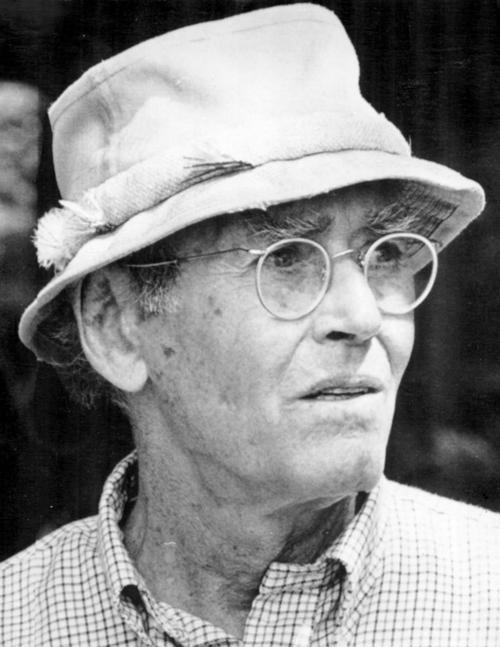
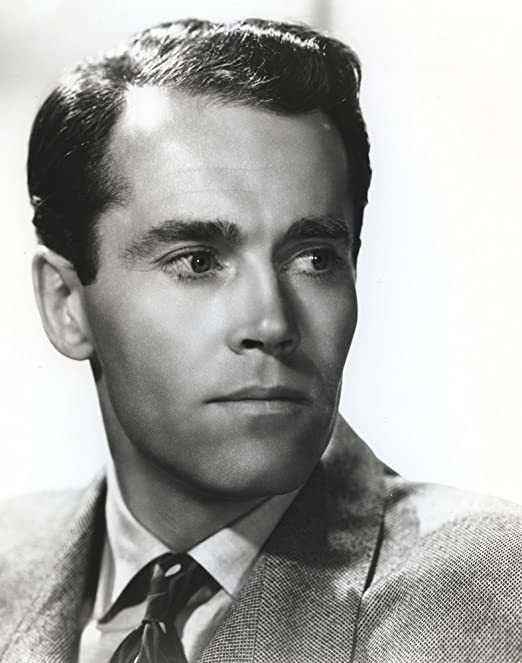

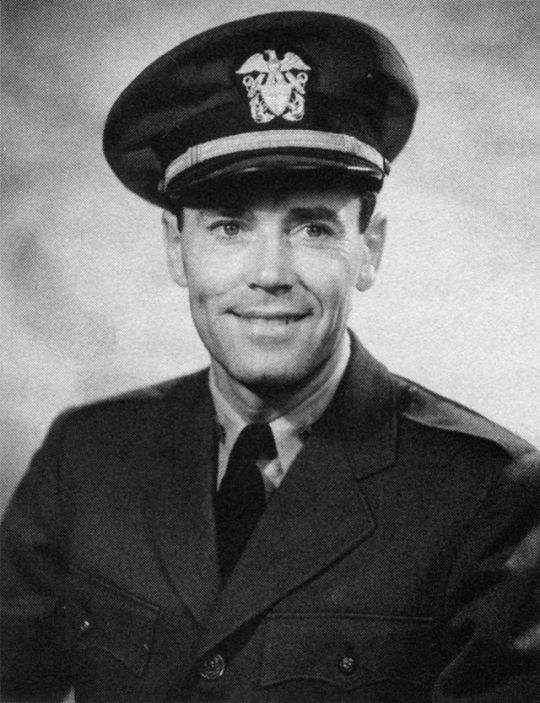
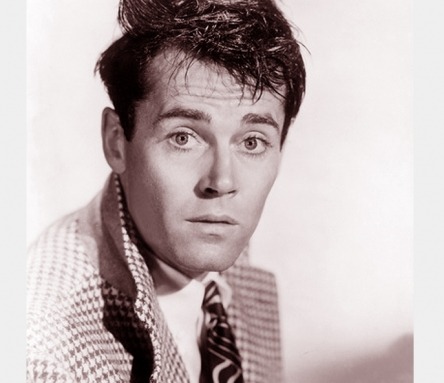
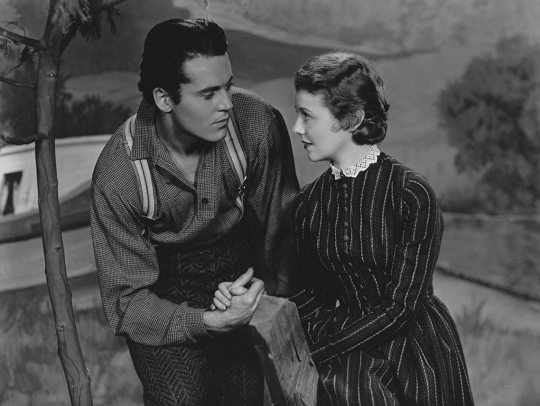
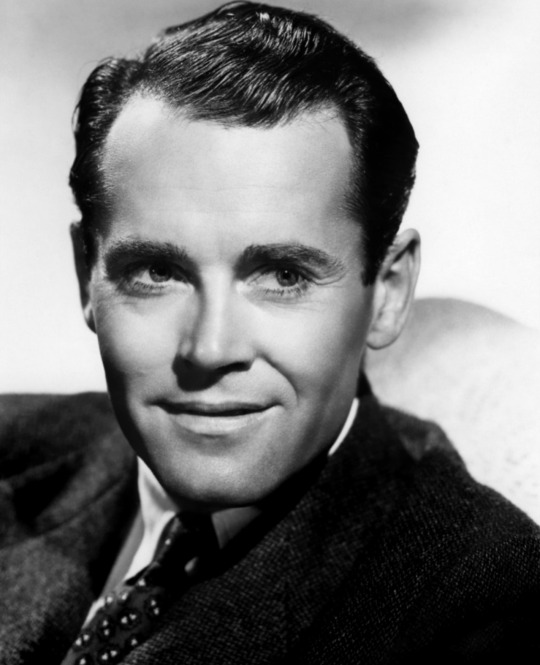
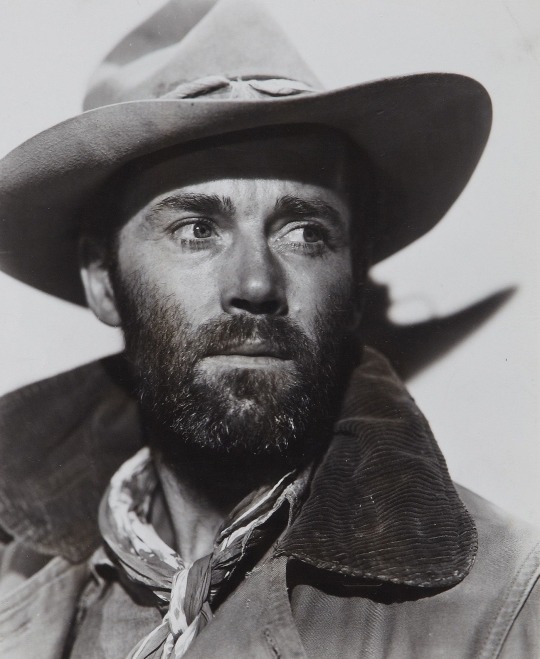
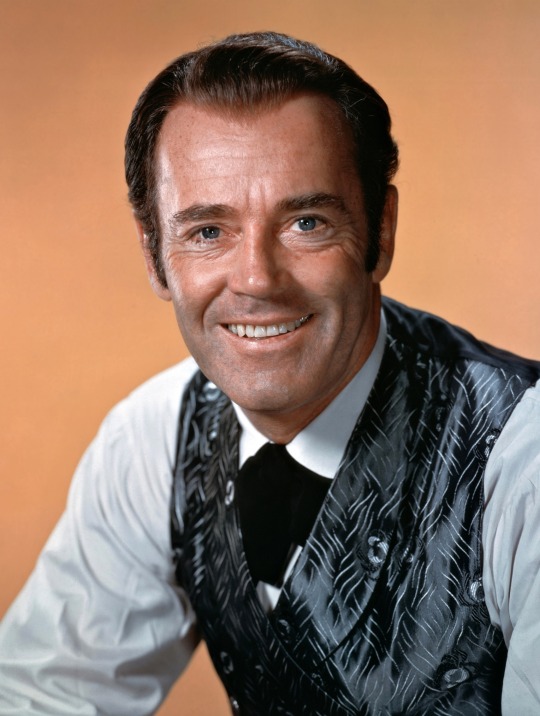

Arrivals & Departures 16 May 1905 – 12 August 1982 Celebrate Henry Jaynes Fonda Day!
Henry Jaynes Fonda (16 May 1905 – 12 August 1982) was an American film and stage actor who had a career that spanned five decades in Hollywood. Fonda cultivated a strong, appealing screen image in several films now considered to be classics, earning one Academy Award for Best Actor on two nominations.
Fonda made his mark early as a Broadway actor and made his Hollywood film debut in 1935. His film career began to gain momentum with roles such as Bette Davis's fiancee in her Academy Award-winning performance in Jezebel (1938), brother Frank in Jesse James (1939), and the future President in Young Mr. Lincoln (1939), directed by John Ford. His early career peaked with his Academy Award-nominated performance as Tom Joad in The Grapes of Wrath, about an Oklahoma family who moved to California during the Dust Bowl 1930′s. This film is widely considered to be among the greatest American films.
In 1941 he starred opposite Barbara Stanwyck in the screwball comedy classic The Lady Eve. Book-ending his service in WWII were his starring roles in two highly regarded westerns: The Ox-Bow Incident (1943) and My Darling Clementine (1946), the latter directed by John Ford, and he also starred in Ford's western Fort Apache (1948). After a seven-year break from films, during which Fonda focused on stage productions, he returned with the WWII war-boat ensemble Mister Roberts (1955). In 1957 he starred as Juror No.8, the hold-out juror, in 12 Angry Men. Fonda, who was also co-producer, won the BAFTA for Best Foreign Actor.
Later in his career, Fonda moved into darker roles, such as the villain in the epic Once Upon a Time in the West (1968), underrated and a box office disappointment at its time of release, but now regarded as one of the best westerns of all time. He also played in lighter-hearted fare such as Yours, Mine and Ours with Lucille Ball, but also often played important military figures, such as a Colonel in Battle of the Bulge (1965), and Admiral Nimitz in Midway (1976). He finally won the Academy Award for Best Actor at the 54th Academy Awards for his final film role in On Golden Pond (1981), which also starred Katharine Hepburn and his daughter Jane Fonda, but was too ill to attend the ceremony. He died from heart disease a few months later.
Fonda was the patriarch of a family of famous actors, including daughter Jane Fonda, son Peter Fonda, granddaughter Bridget Fonda, and grandson Troy Garity. His family and close friends called him "Hank". In 1999 he was named the sixth-Greatest Male Screen Legend of the Classic Hollywood Era (stars with a film debut by 1950) by the American Film Institute.
2 notes
·
View notes
Text
12 agosto … ricordiamo …
12 agosto … ricordiamo … #semprevivineiricordi #nomidaricordare #personaggiimportanti #perfettamentechic #felicementechic #lynda
2014: Lauren Bacall, pseudonimo di Betty Joan Perske, attrice e modella statunitense. Humphrey Bogart fu l’unico amore della sua vita, come ebbe lei stessa a dire molte volte e al quale rimase accanto fino alla morte, avvenuta nel 1957. Dopo la scomparsa del marito la Bacall ebbe una breve e difficile relazione con Frank Sinatra. Si risposò con l’attore Jason Robards. (n. 1924) 2000: Loretta…
youtube
View On WordPress
#12 agosto#12 agosto morti#Achille Togliani#Agnes Zetterstrand#Anna Held#Betty Joan Perske#Dorothy Mackaill#Gretchen Young#Helene Anna Held#Henry Fonda#Henry Jaynes Fonda#Ian Fleming#Ian Lancaster Fleming#Lauren Bacall#Loretta Young#Olga Villi#Paola Di Gerfalco#Paola Mori#Phillips Holmes#Ricordiamo#Shirley Grey#Youtube
0 notes
Text
A CrissColfer Mystery Solved
One of the longest CrissColfer “FACTS” is that Fox Studio actors are under contract for 7 years. They have repeated this “facts” for years and it forms the basis of why Darren is not running around screaming “I’m Gay” and walking arm-and-arm with Chris Colfer down the red carpet.
Today an anon ribbed them over their recent claim that Kevin McHale came out this year only after his 7-year Fox contract was up. The ask was hardly “mean” but of course they attacked like rabid prairie dogs.
Anon: Kevin McHale had a contract with fox until this year? HAHAHAHHAHAHAH Yes, Fox sign contracts with actors for years, even after they stop working with them. Or when they work with other networks such as Kevin who did a miniseries with ABC. Did your little google search on PR teach this nonsense?
You are this stupid for real or you only pretend to be like this when you write to me? Anyway I feel generous: my dear mean and with a lack of intelligence anon, standard F/ox contracts are 7 years long and they have “options” able to give them the possibility to work with others network. But who knows maybe you are too stupid even to check this not only to understand how this business works. Search in my blog, I think you can find the info here.
:) and we wanna talk about NDA?
I am actually a much better researcher than the CCers AND I am not stupid so let’s see what I found when I did some research...and let’s be real, I DIDN’T go to her CC blog to read HER Blog to “find the info”. Cuz I’m feeling generous, I have some advice for her- BEFORE you self righteously call someone “stupid” and question their intelligence, you should be sure you aren’t full of shit.
All I did was Google “How long are Fox Studio Contracts” and this is what I saw

Wikipedia
“The contracts included a studio option for renewal for as long as seven years. For many years, 20th Century Fox claimed to have been founded in 1915, the year Fox Film was founded”
Interesting...THAT sounds an awful lot like EXACTLY what CCers have claimed - including the “OPTIONS”- albeit completely misconstrued.
So. let’s do what NOT STUPID people do and actually READ the post. Let me set the scene....We are reading in the section about the founding of 20th Century Fox...specifically regrading the 1935 merger of Twentieth Century Pictures and Fox Films after which the company became known as 20th Century-Fox Films and established a special training school. Here we find the part we saw on the Google Result page:
Lynn Bari, Patricia Farr and Anne Nagel were among 14 young women "launched on the trail of film stardom" on August 6, 1935, when they each received a six-month contract with 20th Century Fox after spending 18 months in the school. The contracts included a studio option for renewal for as long as seven years
The Wikipedia articles goes on to say
After the merger was completed, Zanuck quickly signed young actors who would carry Twentieth Century-Fox for years:[9]Tyrone Power, Linda Darnell, Carmen Miranda, Don Ameche, Henry Fonda, Gene Tierney, Sonja Henie, and Betty Grable. Also on the Fox payroll he found two players who he built up into the studio's leading assets, Alice Faye and seven-year-old Shirley Temple.
For years studios hired actors for long-term, exclusive contracts in what is referred to as “the Studio System”. Wikipedia says:
...summer of 1962, Fox released nearly all of its contract stars, including Jayne Mansfield
Fox let go of its long term contracts in 50 years ago.
The 7 years the CCers have referenced for YEARS was apparently found in a Wikipedia reference to the version of Fox that existed in 1935.
It looks to me like they DIDN'T actually READ the full post to fully understand it but took the info straight from the Google result page where it clearly was taken out of context! As for the explanation that actors like Kevin McHale were given “Options” to allow them to work with other networks-it’s completely made up. For one thing there is nothing about this in the Wikipedia piece, actors today aren’t under exclusive long-term contracts and the studio system was used before Television was a big thing so there was never a need for “options” to allow an actor to work with other networks.
I also found an article in Forbes in 2014 called “How The Studios Could Benefit By Putting Stars Under Contract” in which the author, Schuyler Moore argues that studios would be wise to again retain actors for long-term contracts. To truly understand his argument, you should read the piece but here are some take aways:
...film companies have abandoned the most valuable property that they finance and create – the stars themselves... in the 1930’s and 40’s, MGM operated under the “star system,” where it nurtured stars under long-term contracts...
Film companies should revert to the studio system and sign relatively unknown actors to long-term contracts...Imagine the benefits to Fox if it had put Leonardo DiCaprio under a seven-year contract before “Titanic”...the film company should retain the value it has created by using them on future films for the fixed compensation or even loaning them out to other film companies at higher rates.
Under the laws of most states (including California), employment contracts can not last beyond seven years, so this is the maximum amount of time that the film company could “own” the actor...
Fox doesn’t have standard 7-year contracts. Fox contracts with actors for shorter periods of time based on the project and the actor. But more importantly when the project ends, the contract ends. They don’t pay their actors to work for them long-term like they did in 1935!
#CC#CCer#CC Family#cc blog#ccers#crisscolfer#darren criss#Fox#Contracts#You should always read the actual article if you don't want to make a fool of yourself.
15 notes
·
View notes
Text
0 notes
Photo

Henry Jaynes Fonda (May 16, 1905 - August 12, 1982) On set, The Grapes of Wrath (1940)
50 notes
·
View notes
Text
Star-Crossed Lovers
Posted: November 5, 2021 3:32am PHT
Edited: November 5, 2021 9:22am PHT

Henry Fonda (Henry Jaynes Fonda)
Born: May 16, 1905 at 2:00pm in Grand Island, Nebraska, United States 🇺🇸
Died: August 12, 1982 in Cedars-Sinai Medical Center, Los Angeles, California, USA 🇺🇸
Sun: Taurus ♉⛰
Moon: Libra ♎🌪
Rising (Ascendant): Virgo ♍⛰
Midheaven: Gemini ♊🌪
Chinese Sign: Wood Snake 🐍

Frances Ford Seymour
Born: April 4, 1908 in Brockville, Canada 🇨🇦
Died: April 14, 1950 in The Craig House Institute, Beacon, New York, USA 🇺🇸
Sun: Aries ♈🔥
Moon: Taurus ♉⛰
Rising (Ascendant): Aries ♈🔥
Midheaven: Capricorn ♑⛰
Chinese Sign: Earth Monkey 🐒
3 notes
·
View notes
Photo

Henry Jaynes Fonda war ein US-amerikanischer Filmschauspieler. Zwischen 1935 und 1981 absolvierte er 115 Film- und Fernsehauftritte. #fotopopart #artlover🎨 #artinfluencer #artgalleries #artdealer #contemporaryart #artoftheweek #artforyou #artforcollectors #artist #artforsale #artgram #artoncanvas #artmagazine @muehlbauergardemin https://www.instagram.com/p/B-yoI3xBFqm/?igshid=1jstjlo2pnbx0
#fotopopart#artlover🎨#artinfluencer#artgalleries#artdealer#contemporaryart#artoftheweek#artforyou#artforcollectors#artist#artforsale#artgram#artoncanvas#artmagazine
0 notes